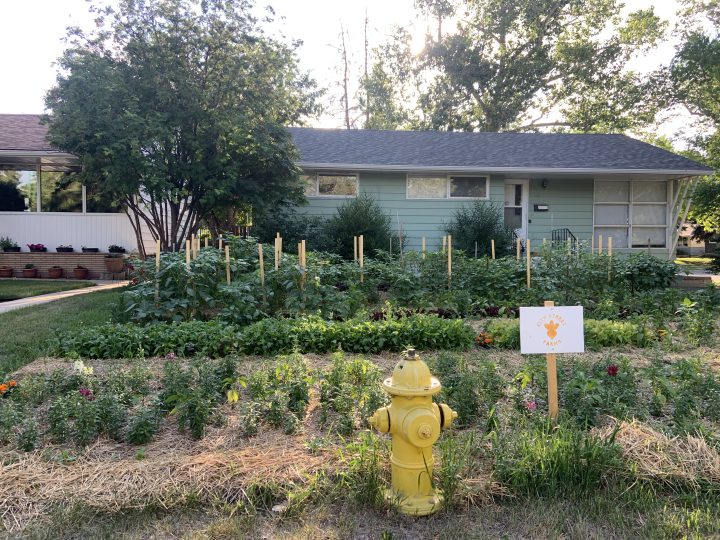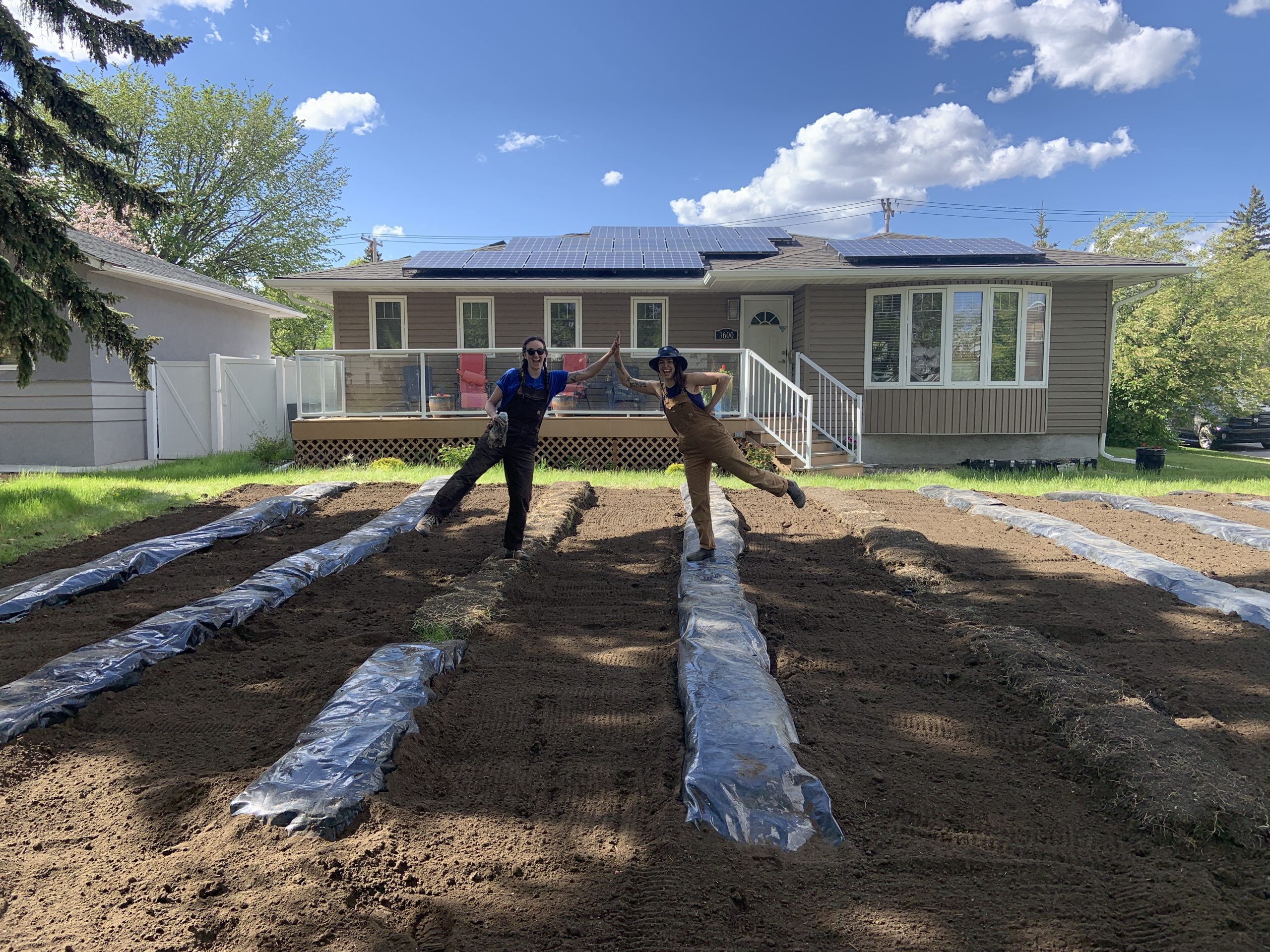Young Agrarians is celebrating the ninth year of the Business Mentorship Network (BMN) program in BC and the expansion of the program across the Prairies! The BMN offers business mentorships to a diverse array of new and young farmers. Through one-on-one mentorship, peer networks and online workshops young farmers develop the skills necessary to operate ecologically sustainable and financially viable farm businesses.
Applications open for Mentees across Western Canada in October 2023. Mentor applications are accepted year-round. Check out the Business Mentorship Network page for more information!
Want to learn more about our Mentees (or Mentors)? Below you’ll find a Q&A where you can learn all about their farm and why they joined the Business Mentorship Network. If you’d like to read about the experiences of other Mentees/Mentors, head to our blog here
Check out the program page on our website for more information!
City Street Farms
City Street Farms is an urban farm that operates as a partnership between Miranda Holt and Candace Benson. Through the Young Agrarians Business Mentorship Network, we have been paired with our mentor extraordinaire, Allison Taylor, and are well into our mentorship relationship for the season.
Where do you farm?
We farm in Regina, SK and acknowledge that we are located on Treaty 4 Territory, home of the Cree, Ojibwa, Salteaux, Dakota, Nakota, Lakota and homeland of the Métis Nation.
What do you farm?
We have 8,000 square feet or 1/6th of an acre under production to grow vegetables and fresh cut flowers
What inspired you to get into farming?
We built this farm from an idea: what if we watered gardens instead of lawns? We each bring different knowledge and backgrounds in gardening, farming, and business and together we took the leap into urban farming and formed City Street Farms.
How did you learn how to farm?
I think we can both say that we are still learning how to farm. In the last two years of running our urban farm, we have learned what it means to grow at a larger volume, how to manage multiple locations, and all the variables that shape a growing season.
Miranda has the gardening background, having been gardening independently for over 15 years. She learned from her Nonna and built on that knowledge through her own gardening over the years.
I (Candace) bring my own knowledge from being around my family’s grain farm and community garden and am lucky to be learning from Miranda’s wealth of gardening know-how while I bring my business background to the partnership.
How much land is under production on your farm?
Our urban farm is made up of 7 residential plots, which equal about 8,000 square feet all together, and this season we chose not to expand our yards (we may even be on time with our seeding!).
What is your land tenure? Are there special relationships that enabled this?
Our land tenure is a pillar of our business, as we don’t own the land we farm on; the lots are privately owned by their respective homeowners. To make this work, we rely on strong partnerships and trade agreements. The homeowners provide access to land and water, along with water bill payment and a one-time fee to transform their yard and in exchange, we take care of all the farming and provide fresh produce and flowers throughout the season. This relationship has proven to be mutually beneficial to everyone involved and has meant we can farm without large capital investment.

What types of ecological farm practices and/or responses to climate change realities do you engage in?
One thing we have learned in our two short seasons is that farming on a small scale in an urban environment means we don’t feel the effects of climate change as strongly as a larger-scale producer might, and we’re also able to control our irrigation a lot more easily making the hot, dry summers less of an obstacle for us. We’ve also learned more about what practices we want to employ and what makes sense for us. We practice what we call “au natural” farming (not organic, but not not organic, if you catch our drift). We aim to keep the ground continually covered, use compost whenever possible, and do not use any synthetic inputs. Our approaches are always evolving as we aim to find a balance between what works for our business, for our farms, and for our environment.
Why did you apply for business mentorship?
As we begin our third year of farming, we felt the desire to have some input from a more experienced farmer. We learned a lot in our first two seasons about our markets, about what we like growing and what we can sell, and about stretching ourselves too thin to try and cater to everyone. With that in mind, we are looking towards our future in a way that we haven’t had the capacity to do before and having a mentor guide us through this season and that shift is what motivated us to apply.
What is the greatest business challenge you face as a new farmer?
I think every new business goes through a shift from doing whatever we can to move forward, to viewing ourselves more as professionals and making decisions accordingly. We are beginning that shift this season and is a large part of our discussions with Allison. In the past two seasons we have experimented with a lot of different things, whether it be trying to make a space work that wasn’t ideal growing conditions or branching off into custom garden boxes, to trying to grow brassicas without proper netting around 1,000s of acres of canola…lots of different things that we needed to try in order to learn where our energy is best spent.
What is your primary business goal for the season?
As we look at our farm with more of a business lens, our goals for this season are more specific than they’ve been in the past: successful succession planting (maybe a book title for succession wizzes out there?), delivering a high-quality bouquet CSA, and consistent product availability to our wholesale and restaurant customers. These goals would have seemed small to us in year one, but with more perspective under our belts we have a better understanding of what it takes to operate an urban farm and know that a strong foundation is where we want to focus our energy.
This season you’ll find us in one of our farmyards, most likely with our headphones on or roping our friends and family into helping us prune tomatoes. We’d say our top business tools on the computer are Square and AgExpert. We use Square for several things and have found it easy and intuitive (most if the time!) to use for invoicing, taking payments, building our website, and hosting our online store. We also use the free Basic version of AgExpert for bookkeeping and it’s just right for what we need.
What business tools could you not live without?
Our favourite tools in the garden…I (Candace) am lost without my fanny pack, filled with all the essentials, and Miranda doesn’t leave the house without her gardening apron. And back to our headphones, they’re essential! We wear them a lot between our phone calls back and forth to each other and for podcast learnin’.
If you had a farming robot what would it be?
If we had a farming robot, I think we would train it to pick up the stuff we forget at our various yards and bring us coffee and beers in whatever order it chooses.
If you hear of such a robot or want to follow along with our farm this season, you can find us on Instagram and Facebook and on our website info below.
How can we find out more about you, your farm, and its products?
You can find City Street Farm here:
Facebook: https://www.facebook.com/CityStreetFarms/
Instagram: @citystreetfarms


 Filter by Popular Categories
Filter by Popular Categories